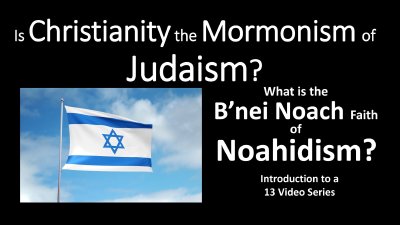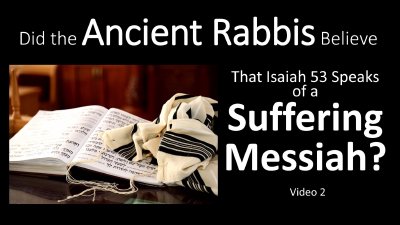The Judaism of today rejects the idea that the Messiah would be a divine being or unique "Son of God." Claiming that God is not a man (Num 23:19), Jewish rabbis have a hard time explaining how God could take on the form of a man (Genesis 32, Joshua 5; Judges 13; Exodus 3; Hosea 12) and appear as two separate beings with multiple thrones as described in Daniel 7:13-14.
While the ancient rabbis of Jesus' day accepted the idea that there exists two distinct "powers" in heaven, second century Judaism developed a strong prohibition against belief in this doctrine in an attempt to distance themselves from the Jewish believers in Yeshua Jesus as the Messiah.
In this video, as we examine a debate between a Jewish rabbi and a Christian discussing the topic of the Messiah being the Son of God, we will also examine not only the many references to the "Angel of the LORD" in the Old Testament, but ancient rabbinic teachings on the Messiah being the "Son of God" found in the Talmud.

04 Is the Messiah the Son of God?
Did Ancient Rabbis Believe in Two Powers in Heaven?
Christina R Darlington






